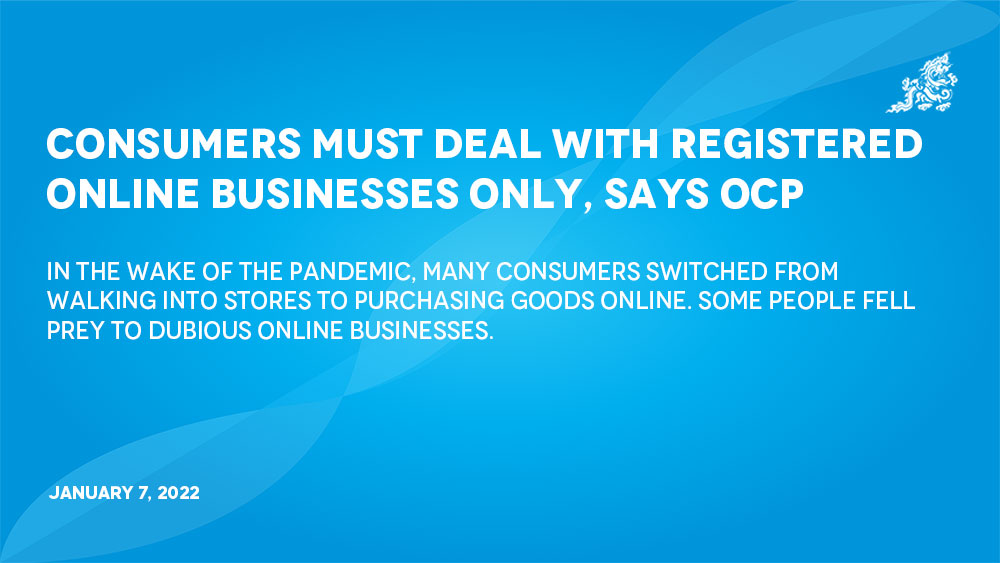Phub Dem
In the wake of the pandemic, many consumers switched from walking into stores to purchasing goods online. Some people fell prey to dubious online businesses.
As e-commerce has given way to Facebook commerce in Bhutan, anyone can sell and buy any item through social media. There are hundreds of online business accounts and pages on Facebook and Instagram.
While such a platform provides choices, flexibility to buy things at one’s convenience, and affordable prices, consumers have become vulnerable to exploitations, deception, unfair trade practices, and misinformation.
A corporate employee saw a Facebook post selling kitchen items. She inquired about the product and even paid half the price, promising the seller to pay the remaining amount after receiving the product. She never received the product and was furthermore blocked by the Facebook account.
Without knowing whom to report the incident to, she let it go. “I thought of going to the police, but gave up after realising that it could be a long process,” she said.
Kelzang Choki, a teacher in Phuentsholing, met with a similar issue recently. She found a person from Punakha purportedly selling Korean stoves at a low price through the Bhutan Online Shopping Facebook page.
After the seller agreed to send the product via a taxi, she paid half the price up front.
She didn’t get the stove. She said that the seller turned off his phone and did not respond to her repeated text messages.
Kelzang Choki decided to report the incident to the police, adding that if left unreported, such dubious businesses would mislead other innocent people online. “I don’t know if the government is monitoring these online deceptions.”
According to E-commerce Policy 2020, a business, when driven by profit motives, is likely to resort to unfair and unethical trade practices that are detrimental to the lives and property of its consumers. Therefore, it is imperative to establish an effective and efficient consumer protection system to protect consumers from these exploitations.
The Office of Consumer Protection (OCP) recently issued a notification listing registered e-commerce businesses to avoid unknown online businesses, and asking consumers to deal only with registered businesses to avoid deception.
The Consumer Protection Act serves as the primary source of legislative protections for consumers.
There are 106 e-commerce businesses registered with the Ministry of Economic Affairs.
Chief Programme Officer of the Consumer Empowerment Division Jigme Dorji said that while the benefits of e-commerce are many, there are risks for consumers related to privacy, fraud, and deception.
He said that acknowledging such issues, the office has developed E-Commerce Guidelines for Consumer Protection to promote fair and ethical online trade practices and protect consumers from unfair and unethical online businesses.
He said that the OCP advocates online services, rights, and redressal mechanisms, encouraging consumers to deal with registered e-commerce businesses. “The OCP can take the necessary actions as per the rules and regulation in the case of disputes or grievances if it is a registered business.”
Besides, he said that aggrieved consumers have the option to seek remedies and compensation from businesses by lodging complaints through a toll-free number (1214), submitting an online complaint through the OCP’s website, or visiting their office.
He said that if the online service provider cannot be tracked, it could be challenging for the OCP to help the consumers. “The OCP urges the public to be careful and consult regional offices in case of any doubts about e-commerce entities.”
Jigme Dorji said that the OCP asks consumers to be extra cautious before ordering any goods or services and determine the credibility of a business.
“It is advisable to deal with businesses registered in Bhutan and reputed international platforms such as Amazon, or regional platforms such as Flipkart, Myntra, and IndiaMart,” he said.
He said that the OCP has a plan to sign a Memorandum of Understanding with consumer protection agencies in India to address cross-border consumer issues legally and promptly.
“In the meantime, the OCP will continue to provide updated information about e-commerce businesses and continue to educate consumers on the precautions to take before dealing with online businesses,” he said.


